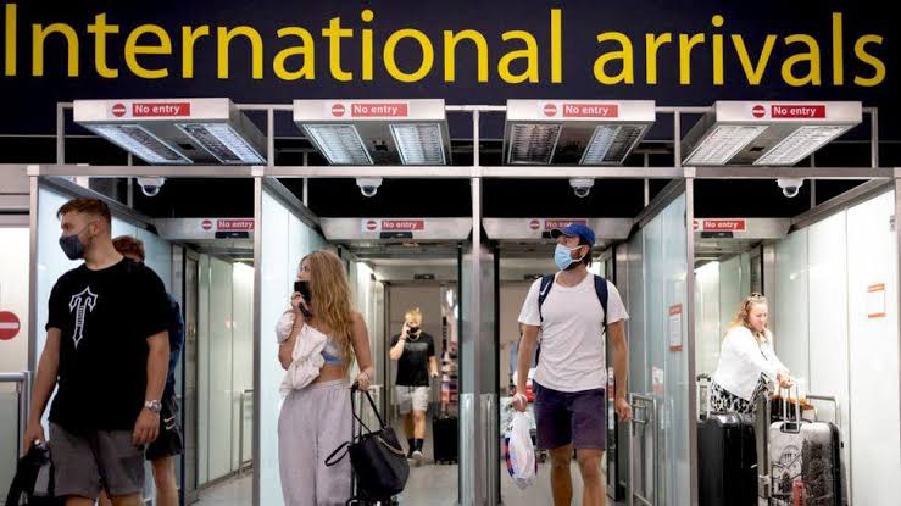More than 300,000 people who arrived in England and Northern Ireland as the coronavirus Delta variant took off have been suspected of breaking quarantine rules.
These cases were passed to investigators between March and May, according to the BBC.
The UK Home Office has stated plans are underway to pay home visits to the violators of the quarantine rules, however, Labour’s shadow home secretary, Nick Thomas-Symonds has said that the figures reveal the government’s “lax border policy” and accused the Home Office of “gross negligence”.
This comes after the prime minister, Boris Johnson, is to announce his winter Covid-19 plan. He is also expected to announce plans to get rid of coronavirus powers that the government no longer needs, including the legal authority to shut down schools and businesses.
The prime minister is also expected to emphasise the importance of vaccines which would allow for a speedy return to a nearly normal life.
In addition, he is to announce set out plans for a third dose as a booster, which will be offered to older people first, however, final decisions are still pending on vaccinating healthy 12- to 15-year-olds and on measures to make it easier to travel abroad.
Addressing measures on travelling, the government introduced new rules earlier this year, for people arriving from abroad in an effort to curtail the spread of the virus and stop new variants from arriving into the country.
People arriving from high-risk countries which are deemed “red list”, had to quarantine in a hotel while those coming from “amber list” – or medium-risk areas – were required to self-isolate for 10 days and provide evidence of negative Covid tests upon arrival.
Within almost three months, from March 17th to May 31st, a time when the highly contagious Delta Variant was spreading rapidly through the country, more than a million people arrived in England and Northern Ireland from amber list countries and a total of 301,076 cases were referred to investigators for checks on whether they were self-isolating.
These cases were contacted by call handlers tasked with contacting arrivals to check they were obeying the self-isolation and testing rules and contacts who refuse to co-operate or indicated intentions to break the quarantine or testing rules were referred to investigators at the Border Force Criminal Justice Unit and the police for further in-person investigation.








